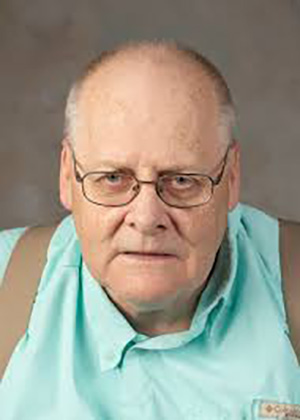By Greg Markley
Dec. 8, 1980 was a routine night for me as a copy boy at a newspaper in my native Rhode Island. I was a 24-year-old college student set to graduate the next month. An editor picked up a teletype message and said to me, “I guess there will be no Beatles reunion now.” I said, “Why?” and he gave me the small sheet that read, “Bulletin: Ex-Beatle John Lennon was shot dead in New York City at 10:55 p.m.” (That is a rough estimate from memory.)
Lennon, born in Liverpool, England, had been a member of the Beatles, one of the most successful rock bands in the 20th century. A creative lyricist and controversial activist, Lennon is not forgotten. He has numerous detractors but many more admirers. Beatles fans sought a reunion for years after the group disbanded in 1969, thus my editor’s sarcastic comment.
In an odd twist, Mark David Chapman, 25, met Lennon and received an autographed copy of an album just six hours before killing him. Lennon, 40, and his wife Yoko Ono, 47, a classical pianist, were returning home after a recording session. At The Dakota, Lennon was shot four times and died at a local hospital.
The next day, Yoko Ono announced “There is no funeral for John,” but added that his fans and friends should remember that “John loved and prayed for the human race. Please do the same for him.” Ono later scattered Lennon’s ashes in Central Park, across from The Dakota that John loved so much. Today, a Strawberry Fields memorial sits there. Ono still lives at The Dakota and is one of the richest women in America.
Chapman pled guilty to second-degree murder and was sentenced to 20 years to life. Parole has been denied 11 times. Supposedly, Chapman had been a devoted fan of the Beatles, but after a religious conversion, he objected to Lennon’s statement that the band was “more popular than Jesus.”
A good number of historians, seeking “periodization” for when the 1960s in a figurative way ended, say the counter-culture movement dissolved soon after Lennon was killed. It was written that Lennon’s death was followed by so much mourning because Ronald Reagan, a strong conservative, would become U.S. president the next month, upsetting liberals.
My cousin Kevin was very upset by Lennon’s death. He is an avid Beatles fan who chose only songs from that band for every tune at his wedding, in 1989. Many young or middle-aged people I met at the newspaper and after work got on a bus that very night or the next morning. It was a 4 ½ hour bus ride to NYC. They joined the crowds placing flowers or photos, while crying, at the murder site.
The three remaining Beatles got to NYC as soon as they could, to mourn and comfort John’s family and fans. Since then, George Harrison, lead guitarist, died in 2001 at age 58. Paul McCartney, lead singer, is 78 and working on a new studio album. Ringo Starr, Beatles drummer, is 80. He recorded a song for a TV special in a tribute to Lennon.
In the 1980s I was in Honduras and attended parties in a sweltering hamlet. Invariably, the hosts brought out records and later CDs of Elvis, the Beatles and Michael Jackson. We got tired of hearing those same singers, but our hosts kept playing them. We knew Elvis, the Beatles, and MJ were good ambassadors, through their music, for the United States.
As a copy boy between 1978 and 1981, I was first to get a teletype message with important news, many times. Reporters had no internet, no Twitter feed, no Facebook, and CNN was the only 24-hour cable news station. On Aug. 6, 1978, our teletype received a Bulletin: “Pope Paul VI is dead.” He was the leader of the Roman Catholic Church for 15 years. That sad news was extremely significant in Rhode Island, as more than half of its residents were Catholic, in 1980.
I wasn’t a Beatles fanatic, and I didn’t have heroes in music or the arts. But I admired two people in politics: civil rights icon John Lewis, and longtime U.S. senator Claiborne Pell. The latter created an education grant program for low- and middle-class youths. I benefitted from that for all four undergrad years. The legislation was later named for Pell, of Newport, RI.
As for John Lennon, 40 years after his death, his influence continues. His theme of “I hope someday you’ll join us, and the world will live as one” continues to draw support. He was a political radical, which I did not like. Yet he deserves his due 40 years after his death, for his musicianship and global impact.
Greg Markley has lived in Lee County for 21 years, on and off. He has master’s degrees in education and history. He taught politics as an adjunct in Georgia and Alabama. He was U.S. Army Europe Journalist of the Year (1993) for articles from Croatia, Germany, and Macedonia.

